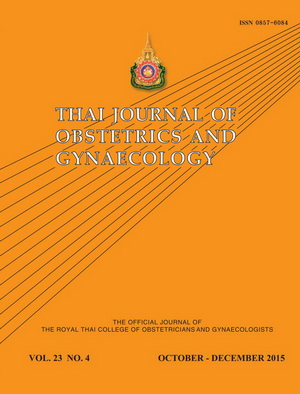Compliance of Different Contraceptive Methods in Thai Women
Main Article Content
Abstract
Objective: To evaluate the compliance of different contraceptive methods, i.e., combined oral contraceptive pills (OCPs), progestin-only injectable (DMPA), condoms, intrauterine devices (IUDs) and progestin implants in Thai women and to evaluate factors affecting contraceptive users’ compliance.
Materials and Methods: Women aged between 15-49 years old who had used contraceptive methods for at least 6 months were invited to participate in this study. Participants were interviewed for the correctness and consistency of contraceptive use. We defined compliance as correct (use) and consistency in using these contraceptive methods.
Results: The compliance of contraceptive methods were 96.7% for DMPA, 83.4% for IUDs, 72.3% for progestin implants, 65.1% for OCPs and 32.7% for condoms. Compliance of OCPs and condoms were associated with the levels of education. Compliance of IUDs was inversely related to the income. No factors were found to be associated with the compliance of DMPA and progestin implants.
Conclusion: DMPA, IUDs and progestin implants which required less users’ attention revealed good compliance while OCPs and condoms showed poor compliance. This may reflect the improper knowledge of users and practicality of the contraceptive methods
Article Details

This work is licensed under a Creative Commons Attribution-NonCommercial-NoDerivatives 4.0 International License.


